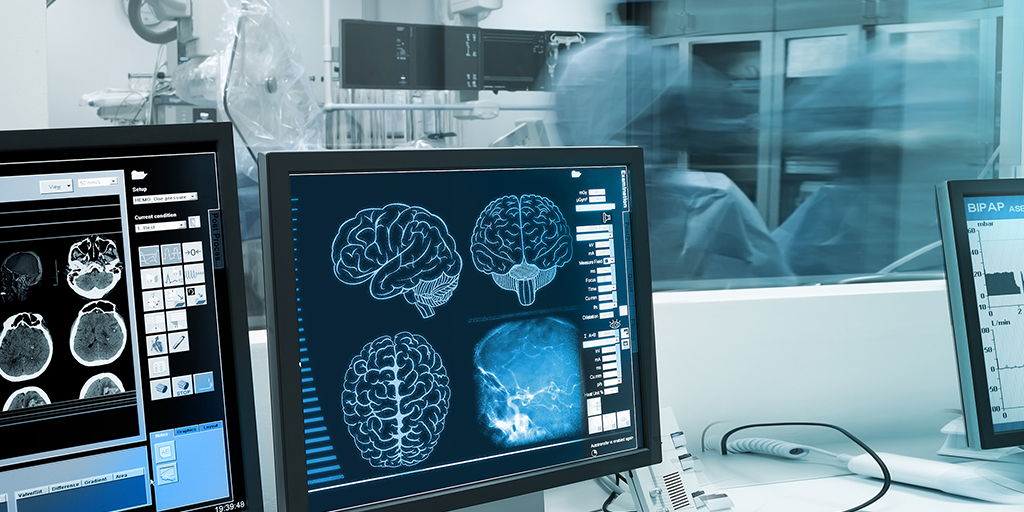
Embracing AI: Transforming MedTech in 2024
We stand on the threshold of a technological renaissance in the healthcare industry, one that has the potential to redefine every aspect of patient care and medical practice as we know it. The fusion of medical technology with artificial intelligence (AI) is reshaping the framework and capabilities of healthcare systems worldwide. Let us explore the innovative leaps AI is bringing to the MedTech industry, guided by insights from our Divisional Manager for the Medical Device and Pharmaceutical team, Anoushka and insights from key industry figures.
The Impact of AI Across Healthcare Domains
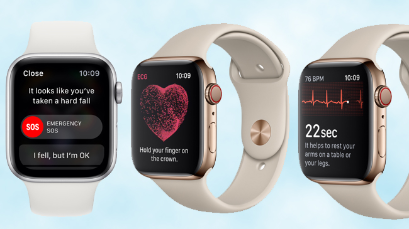
AI's foray into healthcare is marked by a substantial impact across various domains, fundamentally altering the course of patient care. Diagnostic accuracy has seen remarkable improvements, with AI algorithms now capable of parsing through medical imagery with a level of detail previously unattainable. This paradigm shift is not merely about augmenting existing technology but is also indicative of how AI is driving the inception of ingenious healthcare products. A prime example of this is the recent FDA approval of the Apple Watch's, allowing its atrial fibrillation tracking features to be employed in clinical research. This milestone marks a significant moment as the watch's sensor and software become the inaugural digital health product to be endorsed under the agency’s Medical Device Development Tools program. This voluntary pathway recognises specific technologies as reliable enough for integration into scientific investigations without the need for further review. Previously, the program has sanctioned tools like cardiovascular disease questionnaires and imaging programs aimed at improving patient care.
Leveraging AI algorithms, medical device manufacturers can now design products that adapt and learn from vast datasets, resulting in tools that are not only more intuitive and user-friendly but also more effective in monitoring and managing health conditions. AI-powered devices can detect subtle patterns and variations in physiological data that might elude even the most skilled professionals, leading to early detection and intervention that could save lives.
Enhancing Diagnostic Accuracy
One of the most promising applications of AI in MedTech is its ability to enhance diagnostic accuracy. With algorithms trained on vast amounts of medical data, AI-powered diagnostic tools can quickly analyse complex medical images, such as X-rays, MRIs, and CT scans, to detect abnormalities with unprecedented precision. This not only expedites the diagnostic process but also reduces the risk of human error, leading to more accurate diagnoses and timely interventions.
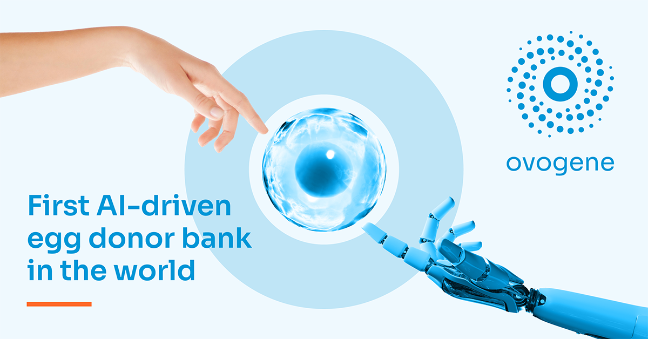
“At Ovogene, we use AI for Egg & Sperm donation. We have Genie on our website who can speak with patients. Though for me, the AI we use for Oocyte selection is critical. We use a slow time-lapsed camera that scans the Oocytes and goes back into our database in helping rank/rate the Oocytes.” - Chris Levy, Country Manager ANZ, Ovogene
Personalised Treatment Plans

AI is revolutionising the way treatment plans are devised and tailored to individual patients. By leveraging machine learning algorithms, MedTech companies can analyse diverse datasets, including genomic information, patient history, and clinical outcomes, to identify personalised treatment regimens optimised for each patient's unique characteristics. This personalised approach not only improves treatment efficiency but also minimises adverse effects, ultimately enhancing patient care and satisfaction.
Streamlining Administrative Tasks
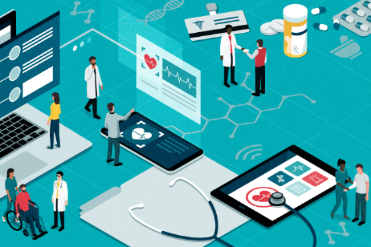
In addition to clinical applications, AI is streamlining administrative tasks within healthcare organisations, thereby optimizing operational efficiency and resource utilisation. From automating appointment scheduling and billing processes to facilitating predictive maintenance of medical equipment, AI-powered solutions are enabling MedTech companies to streamline workflows, reduce administrative burdens, and allocate resources more effectively, ultimately leading to cost savings and improved patient care delivery.
“AI has emerged as a crucial asset in the Medical Devices Industry streamlining operations by automating routine tasks like account planning, quotation generation, email drafting, and report analysis. This automation reduces administrative workload, allowing more time for customer-focused activities. I believe the growth and adoption of AI will be the defining factor that sets companies apart in this sector.” - Emma Carr, Fresenius Kabi
Ethical Considerations and Regulatory Compliance
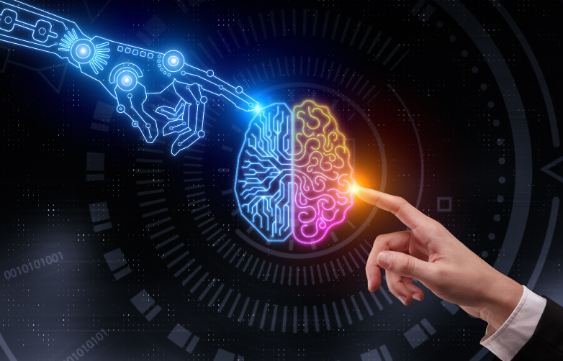
While the potential benefits of AI in MedTech are undeniable, it is crucial to address ethical considerations and ensure regulatory compliance to safeguard patient privacy and data security. As AI algorithms become increasingly sophisticated, concerns regarding data privacy, algorithmic bias, and accountability have come to the forefront. MedTech companies must prioritise ethical AI development practices, transparent algorithms, and robust data governance frameworks to build trust among patients, healthcare providers, and regulatory authorities.
As the benefits of AI in healthcare continue to expand and evolve, embracing these innovations responsibly remains paramount. With a commitment to ethical practices and regulatory compliance, the fusion of AI and MedTech harbors the promise of a future where healthcare is more accessible, accurate, and personalized. Transcending the traditional confines of medical technology, AI leads us into an era of enhanced patient outcomes and optimized healthcare delivery.
Industry Insights - Deon Strydom
Seeking to delve deeper into the real-world impact of AI in the Medical Device Industry, we turn to Deon Strydom, CCO of EchoIQ, a company that has recently applied for FDA approval. His insights from the forefront of AI innovation offer a perspective on how intelligent technology is shaping the future of medical devices and patient care.
How has AI influenced the development and advancement of medical technology during your tenure in the industry?
Over the last 4-5 years AI has completely changed aspects of the industry. The areas where AI was embraced early on was in the areas of workflow optimisation and automation of tasks such as image acquisition for radiology, CV etc. As the industry has come to accept and embrace AI it has found acceptance in areas of disease diagnosis and early detection which is very promising.
What specific areas within medical technology have you seen AI make the most significant impact, and why?
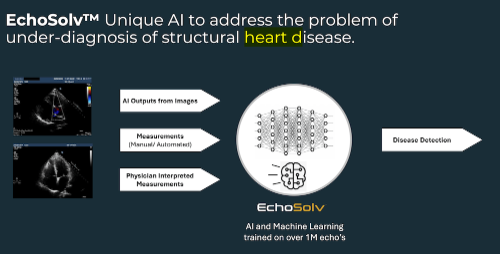
Whilst AI benefits in specialties such as Radiology and Dermatology is well documented, our focus is on cardiovascular disease. Great strides have been made in CV with auto image capture in echocardiography, this reduces the time for sonographers to conduct an echocardiogram. There is currently a huge workforce shortage in sonographers and any time saving helps with getting though any bottlenecks. The are that I am the most excited about is not only disease diagnosis where AI has been shown to be more accurate and more consistent than humans alone, but AI’s ability for early detection of CV disease by identifying risk phenotypes. Risk phenotyping allows for much earlier treatment and intervention and will results in savings of billions of dollars in associated healthcare cost.
In your experience, what challenges have arisen in integrating AI into medical technology, and how have you addressed them?
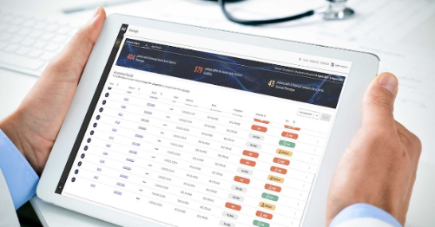
The biggest challenge we have noticed is the increased demands that AI has placed on hospital IT systems. There are long back logs and this is an important step in the process due to the sensitivity with healthcare information. We designed our solution to be vendor agnostic so we can circumnavigate the IT challenge by integrating with existing vendors already approved and integrated within a specific health system. This removes the additional burden on the IT implementation phase. We also undertook voluntary SOC2 & HiPAA compliance, which provides 3rd party endorsement of our existing IT security measures in place when dealing with health data
Conclusion
In fostering innovation and catalysing new product designs, AI has become a linchpin for future advancements in the medical field. As we march forward, it is our collective responsibility to embrace these changes, ensuring that they are enacted ethically and with full regulatory compliance, to the benefit of all patients and practitioners in the healthcare ecosystem.
As we conclude, it's clear that AI's integration into the MedTech industry is reshaping healthcare's future. It brings with it a host of opportunities and challenges, but most importantly, it brings hope for enhanced patient care and medical outcomes. As we harness AI's capabilities, we stand ready to write the next chapter of medical history, one where technology and human expertise converge to deliver compassionate, personalized, and efficient healthcare solutions for everyone.
